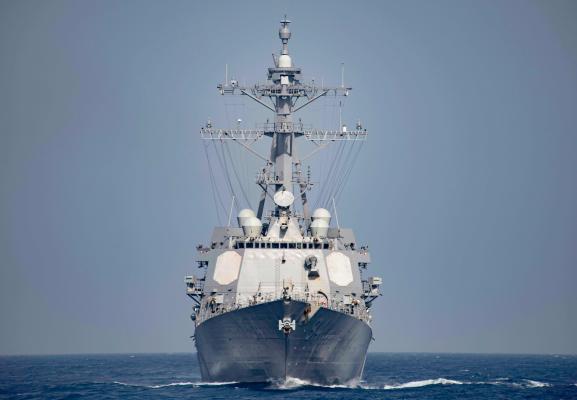US warplanes finally struck Houthi sites and radars on the Red Sea coast after US navy ships were bombed twice. International leniency with the rebels despite the huge number of crimes that they have committed against Yemenis over two years is what has enabled this religious terrorist group to frighten local residents, assassinate political opponents and threaten maritime navigation routes many times. They even bombed an Emirati aid shipment last week.
Do Houthi militias differ from Al-Qaeda and ISIS? Previously, the Houthis never attacked American or western targets and therefore were not included in the list of terrorist organisations. In reality, however, they are actually similar to Al-Qaeda in that they use religion to target civilians and declare war. Houthi political slogans are no different from Al-Qaeda, and they both call people to fight “the disbelieving west”, kill those who do not believe in the same doctrine as them and impose their religious law on Shafi’i Sunnis and other Zaidis who disagree with them. The extremist organisation has filled the streets of cities that is has occupied with images and slogans of its religious leaders and calls for war against “the disbelieving west” and Yemenis who oppose it.
More recently, the Houthis have become more daring and have begun to launch battles against neutral parties. They kidnapped an American teacher who was teaching at an English language institute and who had lived in the capital Sana’a for many years. His fate is still unknown. Then they carried out missile attacks on the US Navy ship USS Mason on Sunday, and the Americans thought that the attack was an instance of indiscriminate bombing carried out by the rebels. However, they carried out another attack on the same ship on Wednesday despite American warnings that followed the first attack.
The US Air Force launched cruise missile strikes on radars belonging to Houthi militias in the provinces of Taiz and Al-Hudaydah. The strikes were not a punishment but were merely a message that warned against attacking the US Navy. These limited strikes gave a specific message; that the Houthis should not attack US ships. The strikes do not suggest that the American side is generally interested in the safety of navigation in the Red Sea and the Strait of Bab Al-Mandab. Battles between the legitimate government’s forces and the Houthis are taking place in order to gain control of the strategic strait.
International navigation on the other side of the Red Sea has suffered over the past decade from the fear incited by pirates belonging to extremist Somali militias. It took international coordination and the formation of multinational naval forces to control the situation. This will be repeated on the Yemeni side of the Red Sea unless the world supports a peaceful solution based on the same international resolutions that were violated when the Houthis and the former Yemeni president carried out a coup and shared authority. Navigational safety and the security of the region and the world requires an international stance against thuggery and militias, regardless of their religion, as long as they carry weapons.
The Houthi organisation, also known as “Ansar Allah” was founded by the Iranians and trained by the Lebanese Hezbollah. It continues to receive military, logistical and media support from there. It is like many armed groups that Iran founded in Iraq, Syria, Afghanistan and Lebanon. It has one function – serving Iranian politics by using armed force. The treatment of religious extremist organisations, whether they are Sunni or Shiite, should be the same.
Al-Qaeda, ISIS and Ansar Allah should all be classified as terrorist groups, rather than limiting terrorism to Al-Qaeda groups just because they attack the west.
